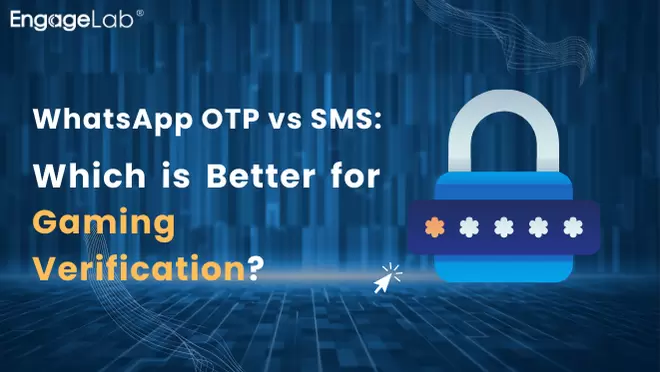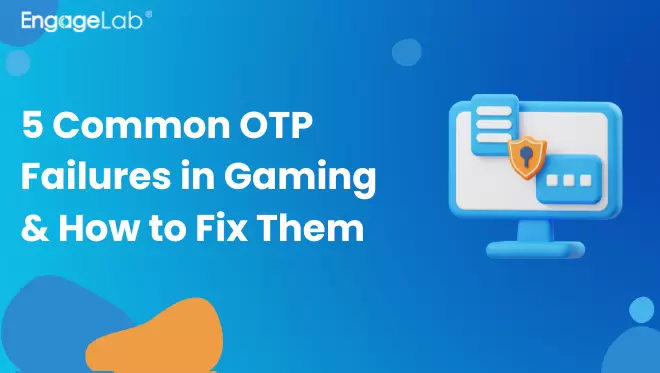“SMS OTP offers an added layer of security that can cut the risk of
data breaches by over 75%, making it an essential tool for enterprises
aiming to protect user logins and transactions. ”
—Marketing Scoop
SMS OTP (One-Time Password) has emerged as a vital instrument for organizations that are in dire need of more secure methods for protecting their online portals, and customers’ accounts. In a world where threats are constantly growing, enterprises require analytic approaches to secure the information and provide safe user interactions.
Thus, SMS OTP services are a good opportunity for businesses and the main flexible authorization method that confirms a user’s identity and guarantees transactions’ safety in the second step.
This article explains SMS OTP meaning and shows how businesses can use it to improve security and reduce threats.
Part 1: What is SMS OTP (One Time Password)?
SMS OTP (One-Time Password) is a temporary passcode sent to a user’s mobile device via text message. It is most often a number or a combination of numbers and letters that serves to validate a user for a login session or a transaction. Unlike static passwords, an OTP can only be used once and usually expires within a short period (such as 5-10 minutes), adding an extra layer of security.

# How Does SMS OTP Work?
The typical flow of an SMS OTP process is simple and widely familiar:
- User action triggers verification - For example, logging in, resetting a password, or making a payment.
- System generates a random OTP - Usually 4 to 8 digits long.
- OTP is sent via SMS - To the registered mobile number linked to the account.
- User enters the code - Into the input field on the website or app.
- System verifies the code - If correct and within the valid timeframe, access is granted or the action is approved.
This mechanism acts as a form of two-factor authentication (2FA) — combining something you know (your password) with something you have (your phone).
# SMS OTP vs. Other OTP Methods
There are other ways to get one-time passwords too, like:
- Email OTP - Sent to a user's email address.
- Authenticator apps - Such as Google Authenticator or Authy, which generate codes locally.
- Hardware tokens - Physical devices that generate OTPs.
Compared to these methods, SMS OTP requires no app installation or hardware, making it user-friendly and quick to deploy.
Part 2: Use Cases of SMS OTP
1 Login Authentication
SMS OTP is commonly used in cases of two-factor authentication during the login procedure. That way, even if one is able to hack his or her password, the user has to enter an OTP sent to her or his phone to gain access.
2 Transaction Verification
Financial institutions and e-commerce platforms use SMS OTP to verify large transactions. This reduces cases of fraud and only the account holder will be the one to authorize such transactions.
3 Password Reset Requests
For organizations that have online services, the most popular use of the SMS OTP is for password resetting. You need to enter an OTP sent to your mobile device before setting a new password.
4 Sensitive Data Access
Other companies that engage in the management of secure data, including healthcare or legal agencies, utilize SMS OTP as a method of limiting permissions to some material. OTP makes sure only authorized staff gets to look at or tweak such data.
Part 3: Why is SMS OTP Important for Security?
Protecting Individual Accounts
Businesses benefit from using SMS OTP for their operations, and regular users enjoy enhanced security as well. OTP works such that even if the attacker gets the user’s password, he or she will be locked out since the OTP is delivered on the user’s mobile device.
This two-factor verification protects an individual’s personal and financial data in the digital world.
Enhancing Business Security
Security is especially important for enterprises. A data breach can significantly cost the organization, as well as its reputation.
SMS OTP adds an extra layer of security, ensuring that sensitive operations like logins, fund transfers, and data access are well protected. This not only guards the business but also provides more confidence to customers as they prefer services that they consider secure.

Part 4: Common Security Risks of SMS OTP (and How to Avoid Them)
1 Common Risks of OTP SMS
While the SMS OTP is a highly effective security mechanism, it has its flaws as well. One such attack is SIM swapping in which an attacker clones a user’s SIM card in order to receive SMS online OTP. However, there is the possibility of intercepting the text messages hence the OTP may also be intercepted.

The SS7 protocol vulnerabilities are another challenge for which attackers are able to intercept SMS messages. It's a global telecommunications network design flaw, but businesses can work through it with additional layers of encryption.
2 Best Practices to Strengthen Security
To counter these risks, firms can use other factors of authentication like; biometric factors or push notifications alongside MFA. There is also an effort to encrypt the SMS OTPs to stop interception. Individuals should secure their mobile devices with strong passwords and never share OTPs.
Businesses should ensure SMS OTP services and transmissions are encrypted to prevent fraud or interception. Additionally, organizations should train their users about the possible risks of phishing attacks or social engineering attackers who are able to trick users into revealing OTP codes.
Part 5: How to Set Up SMS OTP for Your Business?
1 Choose the Right SMS OTP Service Provider
In selecting the most appropriate SMS OTP service provider, enterprises must consider the following factors: dependability, protectiveness, and expandability.
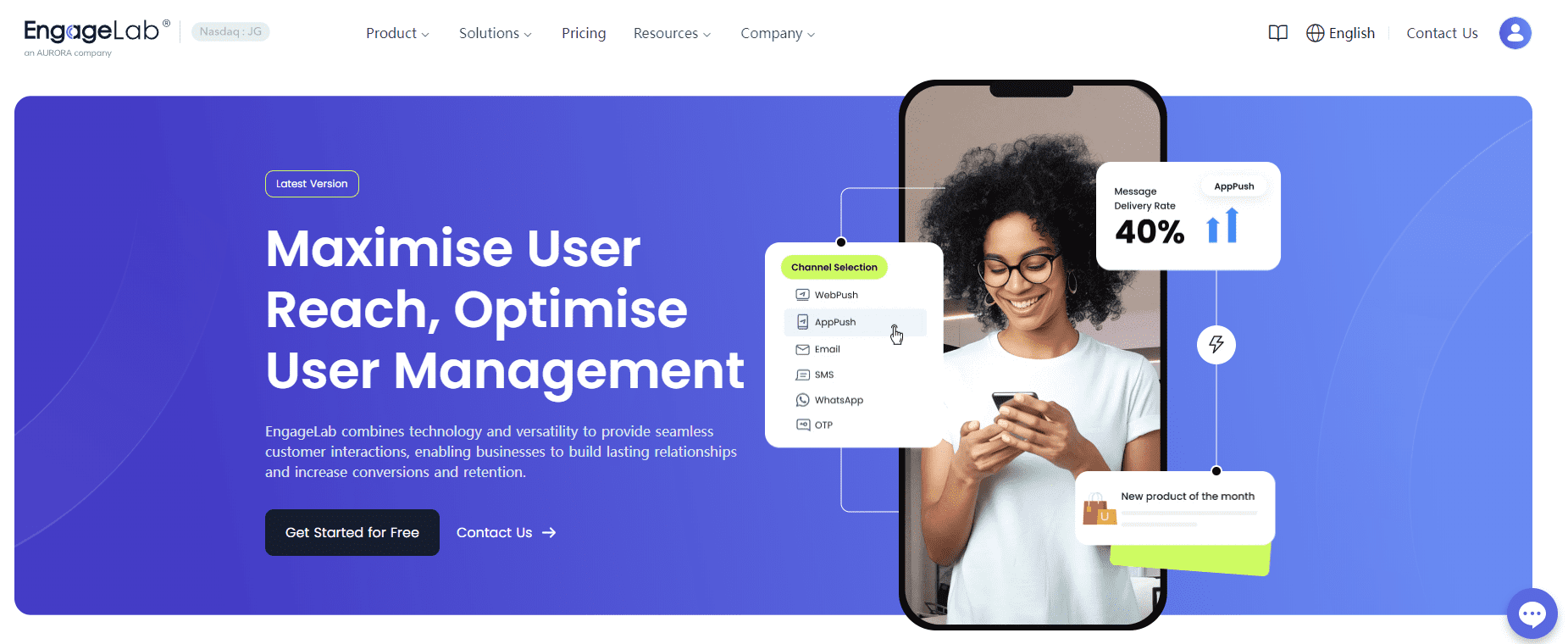
EngageLab, the full-featured SMS OTP provider and multi-channel marketing platform , provides a robust SMS OTP service designed to enhance security and drive growth for businesses.
Here’s how EngageLab stands out:
- Seamless Integration: Easily add OTP generation, verification, and delivery to existing systems.
- Multi-Channel Support: Send OTPs via SMS, WhatsApp, and email with auto-resend.
- Customizable Solutions: Flexible OTP length, type, and validity with multi-language templates.
- Comprehensive Analytics: Track delivery and conversion rates with visual reports.
- Enhanced Security: Fault-tolerant channels protect sensitive data.
- Regulatory Compliance: Meets regional OTP regulations.
2 Integration Steps
Step 1: API Integration
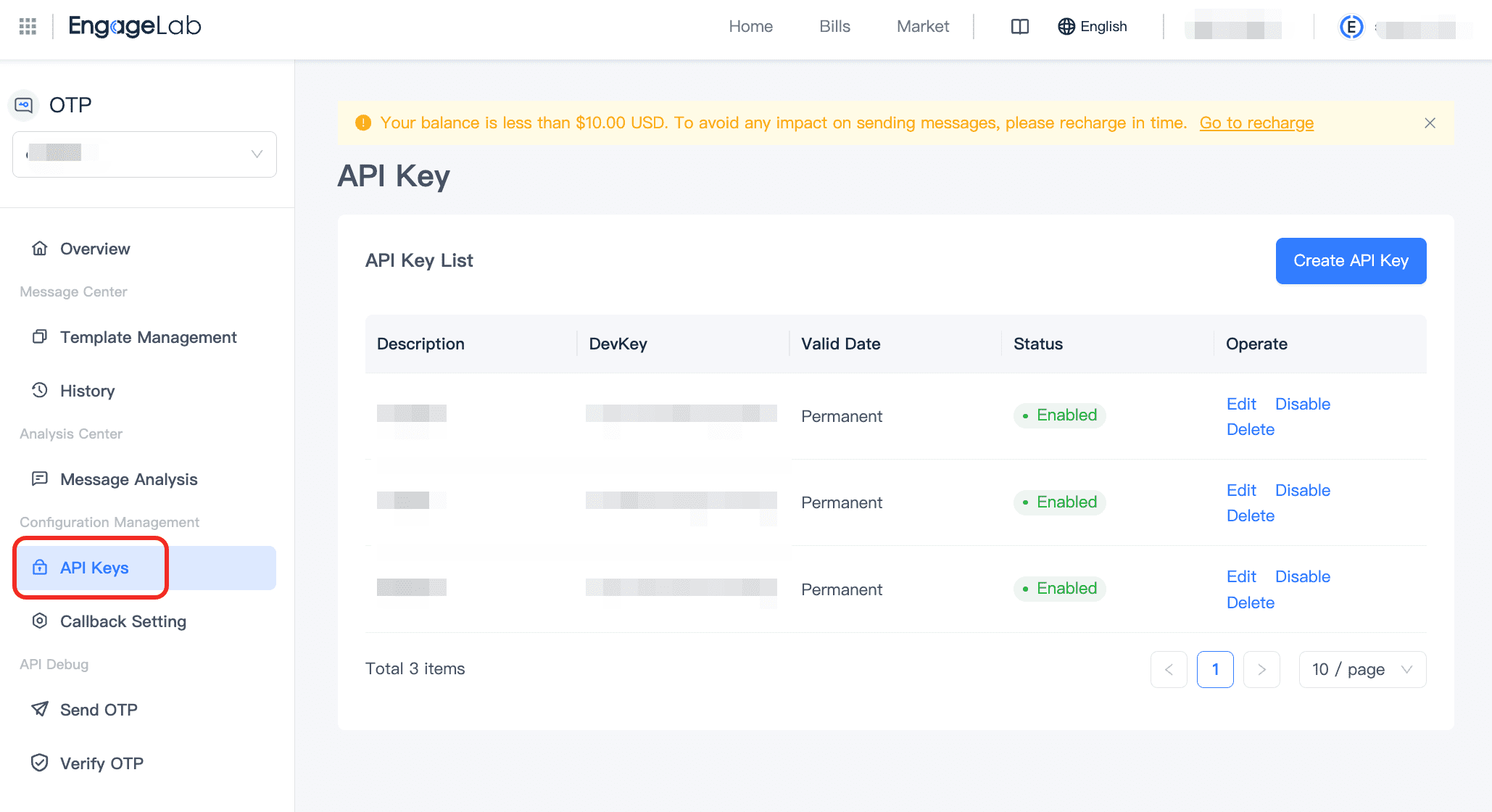
Integrate the provider's API into your system to enable OTP generation, sending, and verification. Smooth integration ensures fast, secure message delivery.
Step 2: Define OTP Parameters & Design Templates:
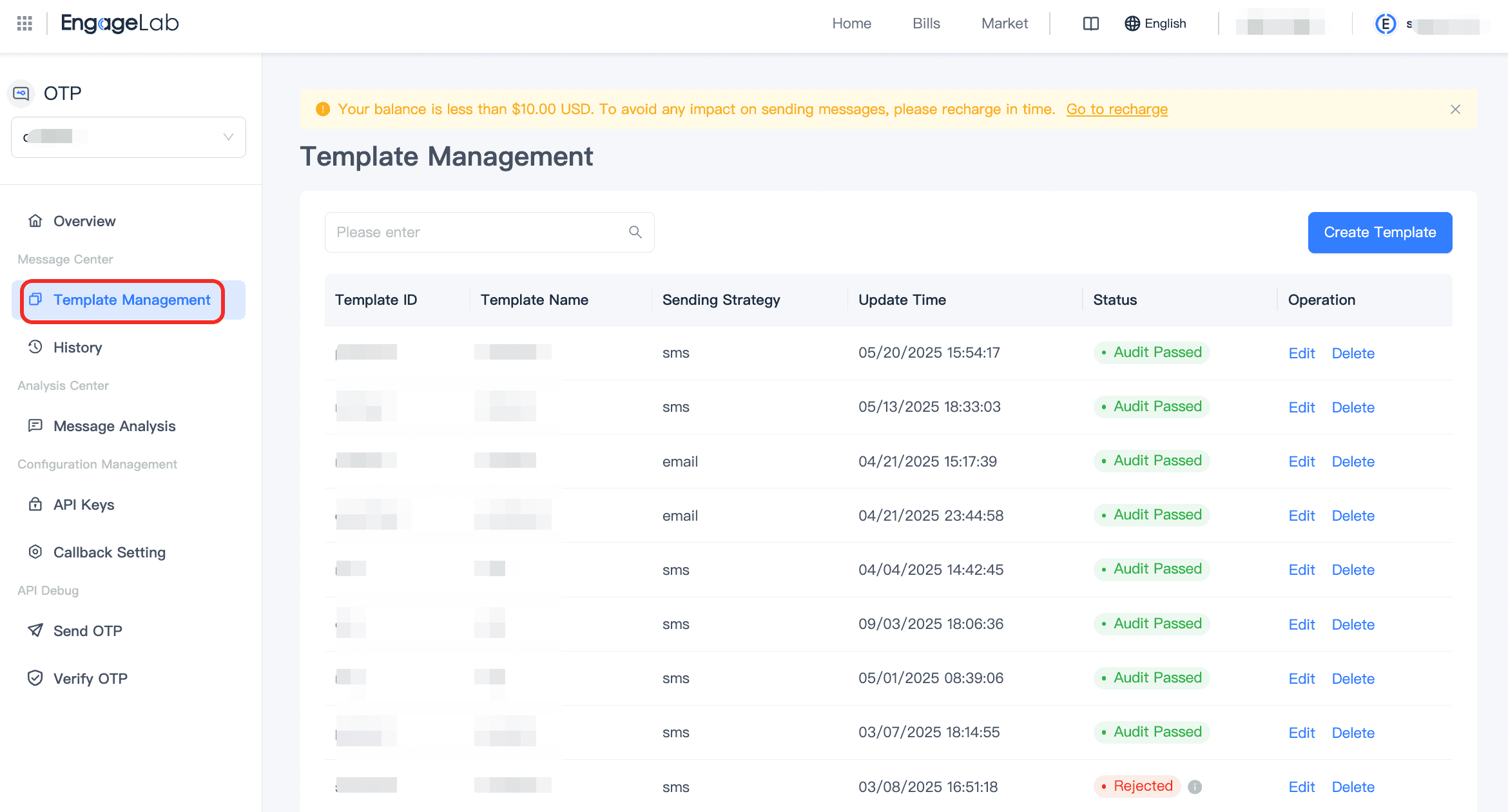
Customize OTP settings based on your business needs. Specify OTP length (typically 4-6 digits), expiration time (e.g., 2-10 minutes), and retry limits to enhance security and prevent abuse.
Simultaneously, create clear and professional message templates. For example: “Your verification code is 123456. Valid for 5 minutes. Do not share with anyone.” Clear, branded messages build trust and reduce confusion.
Step 3: Enable Multi-Channel Delivery:
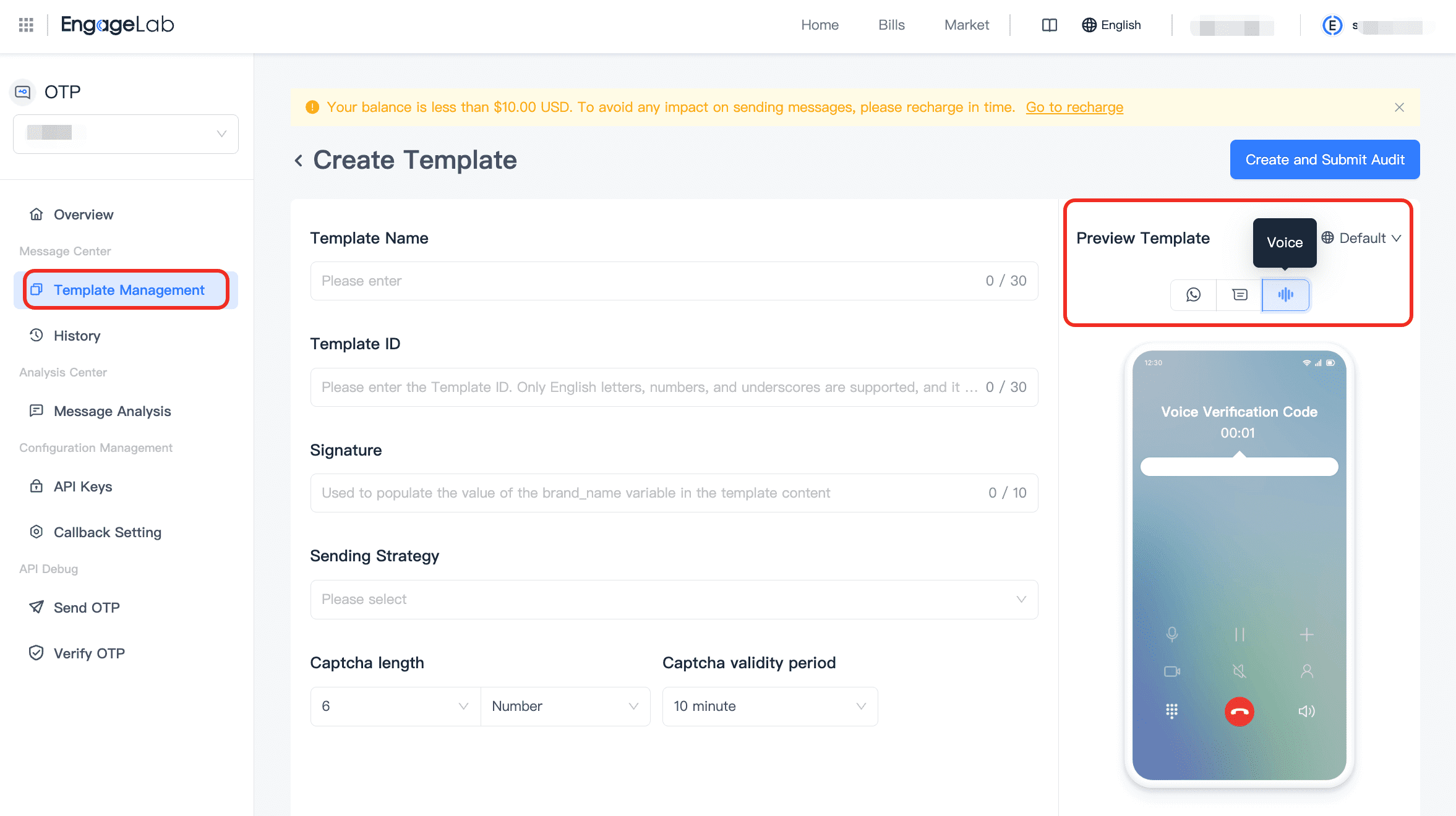
Add fallback channels (WhatsApp, email, voice). If the SMS fails, the system automatically sends the OTP through an alternative channel. This redundancy prevents delivery issues and improves the user experience by ensuring OTP reception.
Step 4: Test the System:
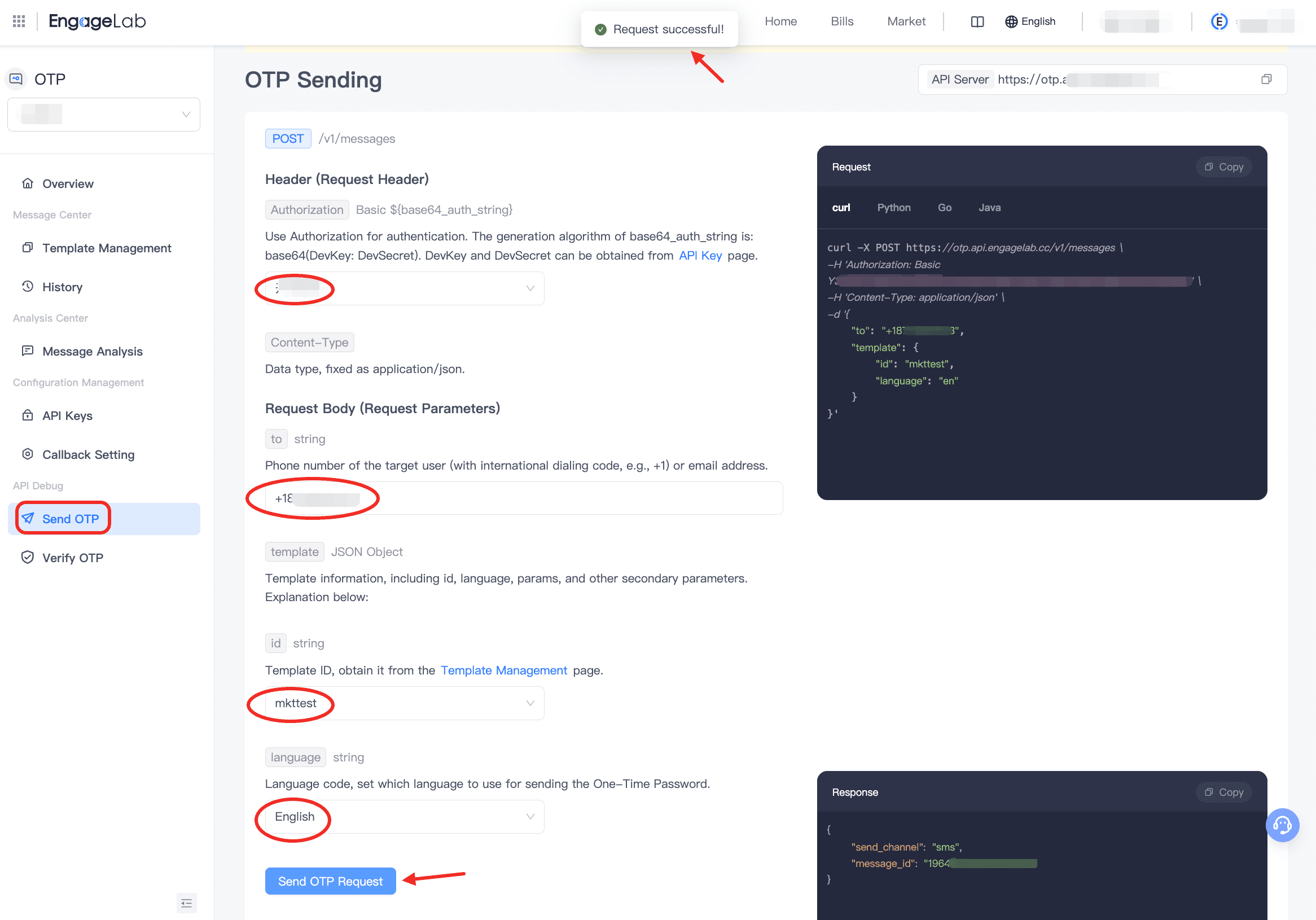
Test delivery speed, accuracy, and reliability across networks and devices. Fix issues before going live.
Step 5: Monitor and Optimize:

Track delivery and conversion rates. Use data insights to refine message timing and improve performance.
Part 6: FAQs about OTP SMS
1 Why am I not receiving OTP messages?
This may be because of low network coverage, wrong phone number input, or below message filtering by the SMS OTP service providers. Ensure that the network the phone is in and make sure that the number listed is correct.
2 How long is an OTP valid?
OTP is generally a temporary code with a lifespan of between 3 to 10 minutes depending on the service provider. Once the expiry time is reached the OTP is no longer valid and any user is required to request for a new one.
3 Is SMS OTP safe?
SMS OTP is moderately safe but vulnerable to SIM swapping, phishing, and interception. For better security, use multi-channel delivery, short OTP validity, and pair it with app-based 2FA for sensitive operations.
Conclusion
SMS OTP services are indeed very important to enterprise security. With the new layer of security, companies become shielded from fraud and hacks of their business alongside unauthorized access to customer details.
Reliable SMS OTP providers, such as EngageLab, also provides the opportunity for growth in security for businesses without losing clients. Since threats are increasing concerning cyber-space, implementing SMS OTP verification is not only a requirement but a way to have an edge against competitors for those firms that consider security as an important factor to consider.
Start For Free
